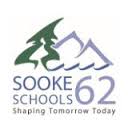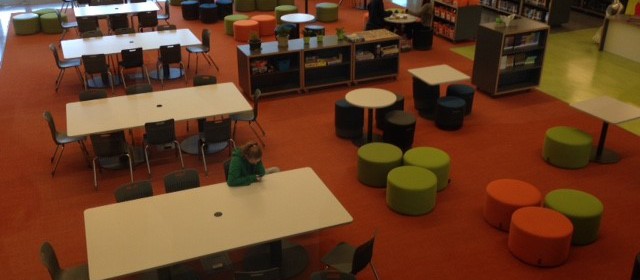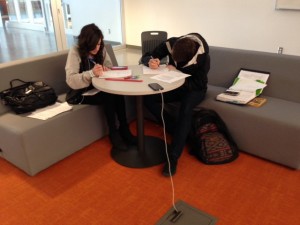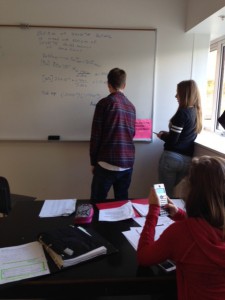Learning and Technology

With the vast amount of information and the advancements in technology, the way students learn and the how faculties teach is changing. This shift in education, driven by technology, has uncovered an opportunity for school libraries to play an important role in school improvement in this educational transformation era (Canadian Library Association, 2014). “For technology to affect student learning, schools must ensure that appropriate resources are in place” (Day, 2010, p. 43). The Learning Commons will supply these resources. The Learning Commons goes beyond the provision of resources, however; it enables learners and faculty to use and experiment with the resources. “The finding of most studies is that technology initiatives will be successful only if professional development and technology support are part of the implementation process” (Nagel, 2010 as cited in Logan, 2010, p. 34). The Royal Bay Learning Commons acts as the laboratory for the experimentation and understanding how the technology can best support the pedagogy to increase student learning and motivation.
Written by Tanya Phillips
References:
Candian Library Association (2014). Leading Learning: Standards of Practice for School Library Learning Commons in Canada. Retrieved from http://clatoolbox.ca/casl/slic/llsop.pdf
Day, C.W. (2010, Feb 1). Classroom Technology: Do you have the right tools for 2010. American School and University Magazine. Retrieved from http://asumag.com/constructiontechnology/tech-talk-classroom-technology
Hayes. T (2014, Jan) Library to Learning Commons. A Recipe for Success. Education Canada Magazine. Retrieved from http://www.cea-ace.ca/education-canada/article/library-learning-commons
Logan, G. (2010). Mobile Technologies in the Classroom. ATA Magazine, 91(1), pp. 32-35.

 rimentation and action research happen” (Loertscher, Koechlin & Zwaan, 2008 as cited in Hayes, 2015). The faculty and administration identify that students learn in unique ways and the concept of a learner centered environment is a part of the school’s culture. Administration and faculty collaborate to “…build the capacity of learners to make sense of the world around them, to graduate good citizens in a democratic society, and to prepare our youth for successful careers and healthy, satisfying personal lives” (Canadian Library Association, 2014). The British Columbia’s Teacher Librarian Association (BCTLA) has identified the need for the scenario described and are working to transform the library into a Learning Commons in schools across BC, among these – schools in the Sooke School District.
rimentation and action research happen” (Loertscher, Koechlin & Zwaan, 2008 as cited in Hayes, 2015). The faculty and administration identify that students learn in unique ways and the concept of a learner centered environment is a part of the school’s culture. Administration and faculty collaborate to “…build the capacity of learners to make sense of the world around them, to graduate good citizens in a democratic society, and to prepare our youth for successful careers and healthy, satisfying personal lives” (Canadian Library Association, 2014). The British Columbia’s Teacher Librarian Association (BCTLA) has identified the need for the scenario described and are working to transform the library into a Learning Commons in schools across BC, among these – schools in the Sooke School District.